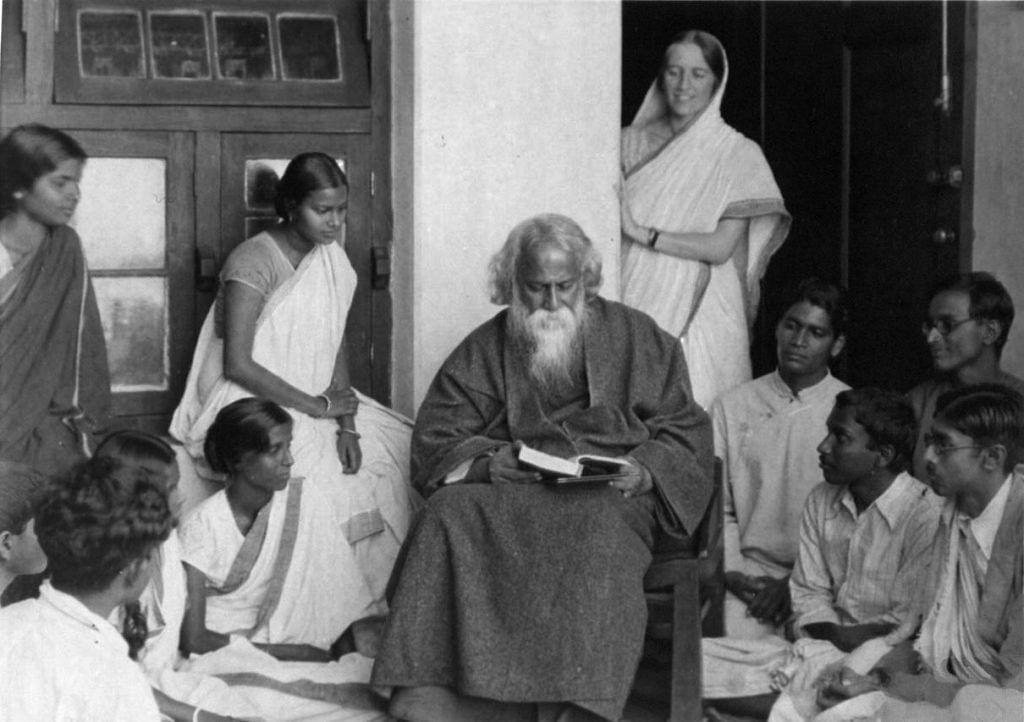What Bengal thinks today, India thinks tomorrow’ — the famous saying by social reformer and freedom fighter Gopal Krishna Gokhale is something that Bengalis swear by.
But Bengal, which was once the symbol of India’s intellectual modernity, is dying a slow death due to its crumbling social infrastructure, lack of jobs and economic stagnation. Over the past few decades, West Bengal has degenerated into ‘Waste Bengal’.
Also read: Mamata plays Bengali card to push back a surging BJP and its ‘divisive politics’
Trapped in time
Bengalis are, however, stuck in a time-warp, refusing to even talk about the state’s problems. Bengal’s intelligentsia or the ‘buddhijibi’ (as they are known in Bangla) hardly ever talks about the state’s economic decay, shut industries, the unimaginable political violence during elections or lack of jobs, as for them, their favourite pastime is reminiscing about the illustrious past.
They will never miss an opportunity to show off how much they prioritise books over everything else. I wonder if they ever read up on the state’s poor finances and creaking infrastructure.
Speak to a friend in Calcutta. He is distraught his book collection has been damaged. Later into the chat, I find out his house has also been damaged, but that’s almost an afterthought. The books are priority, as they must always be in Calcutta. God bless my once and forever city
— Ashok Malik (@MalikAshok) May 22, 2020
Bengalis love to take pride in their culture, language, and identity, and it is non-negotiable. They love to worship Rabindranath Tagore or Satyajit Ray.
No doubt, they were great personalities, but for Bengali intellectuals, you’re not ‘Bengali’ enough if you haven’t read Tagore’s poems or seen Ray’s films.
Although I’m a Bengali too, I find it hard to stomach such cultural arrogance, especially when the state is plagued by so many problems for years now, which remain far from being resolved.
Also read: Boroline — the cure-all that is stuck in time but still brings joy, especially to Bengalis
The politics of Bengali pride
Invoking Bengali pride and sub-nationalism has been one of the distinct traits of West Bengal’s politicians, who stir up such sentiments to cover up their administrative failures and to gain a political upper hand.
Be it the Left Front a decade ago or Chief Minister Mamata Banerjee’s Trinamool Congress now, invoking Bengali pride has been their go-to answer to the state’s colossal problems.
The Bengali pride has come to Mamata’s rescue in the coronavirus times too. The chief minister is playing up the ‘Bangla and Bangali’ refrain to counter criticism for Covid mismanagement.
On 12 May, during a press conference in Kolkata, Mamata had even said she would pray to god to forgive “Bengalis who are maligning the image of Bengal”.
She also wants to change the state’s name to Bangla, something the Left Front government also tried to do. She had once asserted that those living in West Bengal will have to learn to speak Bangla.
West Bengal’s former chief minister Jyoti Basu had invoked Bengali chauvinism by wanting to introduce Bangla as the official language in the Calcutta High Court. Furthermore, in the year 2000, the Left government under Buddhadeb Bhattacharjee issued an order to introduce Bangla in government offices.
Playing up this sub-nationalism card is perhaps an easy option for the politicians to fool people by touching the emotional chord, and garner votes.
In a way, Bengal’s cultural pride and arrogance have always come in the path of its social development, and done more harm than good to the state.
Also read: Mamata becomes mellow ‘Bengal’s daughter’ as she rebrands herself for 2021 assembly polls
Bengalis can do better
But all is not lost for Bengal yet. There are certain course-corrections that Bengal and Bengalis need to do for a better future.
First and foremost, the state needs to reverse its industrial decline. Bengal was once an industrial powerhouse. But years of trade unionism and government’s criminal apathy dealt a severe blow to industrialisation, leading to many big industries exiting Bengal.
Lack of industry and jobs have hurt educated Bengalis the most as they’ve been forced to migrate in search of jobs. Bengali intellectuals, especially the state’s young population, must support and encourage industries and businesses as much as they can. Reversing the industrial decline won’t be an easy task but is a must to get the state’s economy back on track.
Also read: Mamata is invoking Bengali pride again — her new ‘strategy’ to counter Covid flak
Looking beyond the ‘past’
Bengal also needs to invest massively in its health infrastructure. The state has failed miserably in tackling the current pandemic. According to reports, Bengal has one of the worst Covid testing records with the highest fatality rate among top ten states with most active cases. Bengal’s intelligentsia will do the state some good if it can build a narrative around Bengal’s failing health system and how it can be fixed. Also, moneyed Bengalis settled outside the state and the country, who keep feeling sorry about Bengal’s deprivation, can donate and invest in the health sector.
The Bengali intelligentsia can’t rest on the laurels of the past, and keep getting nostalgic about it. They must generate new ideas and vision with regard to the state’s social and economic growth. They should also consider entering public life to usher in positive changes — something which Bengal needs desperately.
Bengal does have the intellect to again be the symbol of modernity and prosperity. But for that, it needs to shed its colonial baggage and move forward.
A state’s pride lies not just in the number of Nobel laureates it produces, but also in the way it takes care of its citizens. Misplaced pride cannot prosper a state, but jobs, industries, and a robust health system certainly can.
Views are personal.
